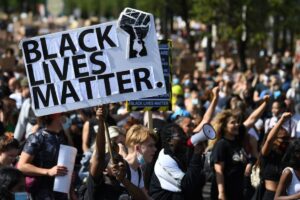
During an exclusive interview with The Associated Press, the Black Lives Matter Foundation said that the organization had received more than $90 million in donations last year. Most of the gifts came in following the civil unrest as a result of rising use of police brutality and in the wake of the death of George Floyd.
The foundation’s influence increased over the year along with the boiling tensions among Black communities, which sparked individual donations to spur change around the U.S.
The foundation said it committed $21.7 million in grant funding to official and unofficial BLM chapters, as well as 30 Black-led local organizations. It ended 2020 with a balance of more than $60 million, after spending nearly a quarter of its assets on grant funds and other charitable giving, according to The Associated Press.
While the organization’s expenses were only $8.4 million, there is still a large sum waiting for charitable giving. After the news of BLM’s donations, many people wondered how these funds would be allocated back into the Black community.
Christina Stapleton, a junior at FAMU, believes that investing back into Black communities overall is a necessity by supporting your own people, and that even through hard times defined by racism we can still rise as people by showing how powerful we are unified.
“I feel like the money should go into supporting HBCUs to further support all of our Black scholars by implementing a scholarship fund. Especially since HBCUs are where a lot of Black people feel comfortable getting their education at. Funding more events, repairs, and building and even food programs. In general, improving campus life for students breeds Black excellence,” Stapleton said.
Others believe the funds could be used to establish community outreach programs or expand necessities within Black and Brown communities. Morgan Pinnock, a senior at FAMU, says access to healthcare and nutrition is a top priority for people in low-income neighborhoods.
“If we want to see positive growth within our communities we must start with the kids and build up their future from the ground up. I feel like the Black Lives Matter should focus on majority low-income areas to provide more assistance such as food panties in communities where healthy foods are not an option such as Greenwise or Aldi. Affordable healthcare is also something Black communities are always stressing about; Black Lives Matter could establish some type of health program so it’s less difficult to receive proper care in those low-income neighborhoods,” Pinnock said.
Black Lives Matter founder Patrisse Cullors said the foundation’s biggest goal is to reinvest in social and economic justice within communities of color and improve the racial movement among political officials.